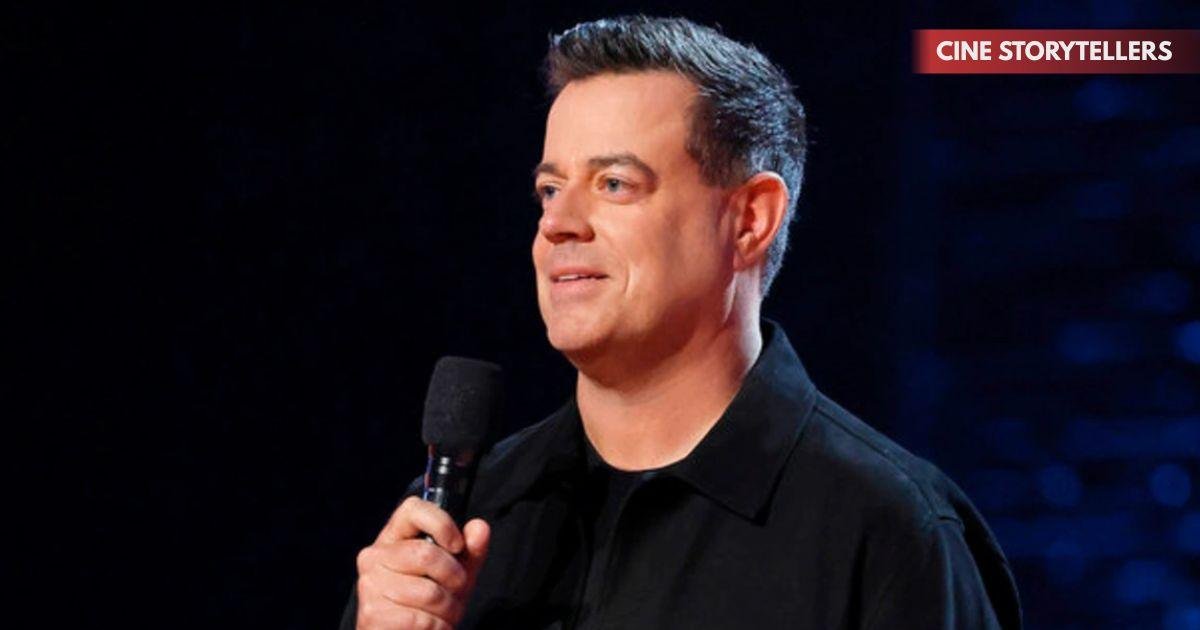Season 28 of The Voice has unveiled an exciting new twist: the ‘Carson Callback Card.’ For the first time, host Carson Daly has the power to directly intervene when an artist fails to turn any chairs during the Blind Auditions. This innovation not only provides a second chance for talented contestants but also adds a layer of unpredictability and suspense to the show.
This season, viewers are witnessing a fresh dynamic in the competition, where one host can influence the fate of artists, highlighting both talent and opportunity in a unique way.
What Is the ‘Carson Callback Card’?
The ‘Carson Callback Card’ is a new feature designed to give deserving contestants another shot at success. If a singer performs and none of the coaches turn their chairs, Carson Daly can step in and offer them the card. This allows the contestant to re-audition with a new song, potentially impressing the coaches this time around.
Unlike traditional Blind Auditions, where a single performance determines the outcome, this twist recognizes that some artists may need a second chance to showcase their true abilities.
The First Artist to Receive the Callback
During the Season 28 premiere, Ryan Mitchell, an alt-rock singer from Los Angeles, became the first contestant to receive the ‘Carson Callback Card.’
Mitchell performed “Cigarette Daydreams” by Cage the Elephant, delivering an emotionally powerful performance tied to his personal journey overcoming substance abuse. Despite his heartfelt presentation, none of the coaches initially turned their chairs.
Recognizing his potential, Carson Daly intervened, offering Mitchell the callback and encouraging him to choose a new song for the following day’s audition. This moment quickly became a highlight of the season, demonstrating how the feature can change the trajectory of a contestant’s journey on the show.
How the ‘Carson Callback Card’ Changes the Competition
The introduction of this card brings several key changes to The Voice‘s format:
Empowering the Host
Carson Daly has been the face of The Voice since its inception. The callback card gives him a tangible way to influence the competition, rewarding his insight into talent and potential.
Providing Second Chances
Some contestants may have an off-day, poor song choice, or simply be overlooked. This feature ensures that promising talent is not dismissed prematurely, aligning with the show’s mission to discover and nurture singers.
Increasing Suspense and Drama
The possibility of a callback adds tension and excitement to each episode. Audiences now wonder if a contestant who initially fails will get a second opportunity, keeping viewers engaged and invested in each audition.
Audience and Fan Reactions
Fans have embraced the new feature enthusiastically. Social media platforms such as Twitter, Instagram, and TikTok have been flooded with discussions, memes, and predictions about which artists will receive callbacks.
Many viewers have praised the fairness it brings to the competition, while others are excited to see how the card may create unexpected plot twists, such as contestants making dramatic comebacks or coaches being surprised by hidden talent.
Examples of the Card in Action
While Ryan Mitchell is the first contestant to utilize the card, producers have hinted that future episodes will feature additional artists receiving callbacks. Each instance introduces suspense and showcases the diversity of talent competing on the show.
The card also emphasizes storytelling within the competition, allowing viewers to connect with contestants on a deeper emotional level. Personal backstories, struggles, and resilience become more impactful when the show gives a contestant a second chance.
The Strategic Role of Coaches
Although the card is granted by Carson Daly, coaches still play a pivotal role once the contestant returns. They must evaluate whether the new performance meets their standards and decide whether to turn their chairs.
This adds a strategic element to the competition, as coaches may adjust their approach when facing a contestant who has been given a second chance. It encourages them to pay closer attention to subtle nuances and vocal improvement.
Impact on Contestants
The ‘Carson Callback Card’ can be a game-changer for contestants:
- Provides a second opportunity to demonstrate growth or versatility
- Boosts confidence by validating their talent despite initial rejection
- Offers a potential career breakthrough through renewed exposure
For many contestants, this second chance can transform a near-elimination into a pivotal moment in their journey toward becoming a The Voice champion.
Behind the Scenes: Why This Feature Was Introduced
Producers designed the ‘Carson Callback Card’ to address common concerns about talent being overlooked. In a competitive show with multiple coaches and limited spots, even highly skilled singers can be passed over due to timing or song choice.
The card reflects the show’s commitment to fairness while adding a fresh narrative twist, maintaining viewer interest and providing new opportunities for memorable moments.
What to Expect in Upcoming Episodes
As Season 28 progresses, audiences can anticipate:
- More contestants receiving callbacks
- Dramatic and emotional performances during second auditions
- Surprising choices by coaches in response to returning contestants
- Increased viewer engagement through social media speculation and fan discussions
This evolution in format ensures that The Voice remains dynamic, modern, and unpredictable.
Also Read : Leon Thomas Australia Tour 2026 – Dates, Tickets, VIP Packages
FAQ
Q1: What is the ‘Carson Callback Card’?
A1: It’s a feature in Season 28 of The Voice that allows host Carson Daly to give eliminated contestants a second chance to audition with a new song.
Q2: Who was the first contestant to receive the card?
A2: Ryan Mitchell, an alt-rock singer from Los Angeles, was the first to be given the ‘Carson Callback Card.’
Q3: How does the card affect the competition?
A3: It allows talented contestants who were initially overlooked to re-audition, potentially changing the course of the competition.
Q4: Can coaches override the callback?
A4: No, once Carson grants the card, the contestant is guaranteed a second audition. Coaches then decide whether to turn their chairs.
Q5: Will this feature be used in every episode?
A5: While not guaranteed in every episode, the card adds suspense and unpredictability to the season.
Q6: How does this change the viewer experience?
A6: It increases engagement, adds suspense, and highlights personal growth stories, making each audition more compelling.
Q7: Why was the ‘Carson Callback Card’ introduced?
A7: To provide deserving contestants a second chance, ensure fairness, and inject new excitement into the Blind Auditions.
Join our WhatsApp channel for more updates and information about celebrities and entertainment.

I’m Atul Kumar, founder of Cine Storytellers and an entertainment creator with 5+ years of experience. I cover films, celebrities, music, and OTT content with a focus on accurate, ethical, and engaging storytelling. My goal is to bring readers trustworthy entertainment news that informs, inspires, and goes beyond gossip.
Discover more from Cine Storytellers
Subscribe to get the latest posts sent to your email.
